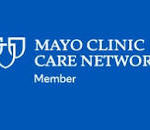
Researchers are continuing to test the use of donated blood as a treatment for people with severe coronavirus disease 2019 (COVID-19).
People who’ve recovered from COVID-19 have antibodies to the disease in their blood. Doctors call this convalescent plasma. Researchers hope that convalescent plasma can be given to people with severe COVID-19 to boost their ability to fight the virus. The Mayo Clinic has published information on what convalescent plasma is, and how it works. Michael J. Joyner, M.D., an anesthesiologist and physiologist with the Mayo Clinic provided the information on the Mayo Clinic site. Joyner is part of the National COVID-19 Convalescent Plasma Project.
The U.S. Food and Drug Administration has not yet approved the use of convalescent plasma for COVID-19, but it has outlined the requirements that individuals must meet to donate blood for this research. Before donated blood can be used, it must be tested for safety. It then goes through a process to separate out blood cells so that all that’s left is plasma with antibodies.
The immediate goal of this research is to determine if convalescent plasma can improve the chance of recovery for people with the most severe disease. A second goal is to test whether convalescent plasma can help keep people who are moderately sick from getting sicker.
Such a treatment would be a boon for people at high risk — such as with underlying medical conditions, as well as family members and health care workers who have been exposed.
In addition, learning more about the use of convalescent plasma now will help health care workers be better prepared if a second wave of disease occurs, as has happened with past viral outbreaks.
In an email, Blood Bank Hawaii President and CEO Kim-Anh Nguyen said, “BBH is exploring pathways for COVID convalescent plasma. I think it would be best if we work together as a healthcare coalition statewide. We’re working diligently toward this – hope that we can report progress in the near future.”
Blood Bank Hawaii is only collecting donated blood at this time on O’ahu, and Nguyen said they hope to be able to resume collections on Hawaii Island soon.